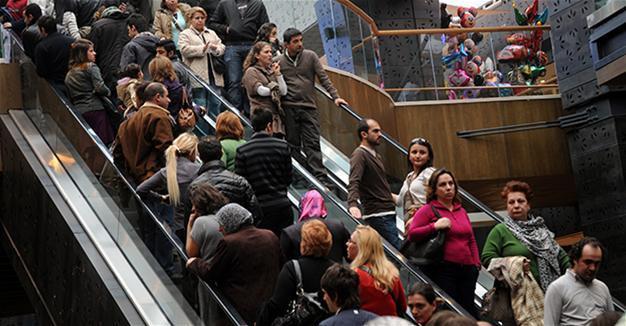Nearly one in five people obese in Turkey: Survey
ANKARA - Anadolu Agency

Nearly one in five people in Turkey is obese, according to the results of a 2016 health survey released by the Turkish Statistical Institute (TÜİK) on May 31.
The survey showed that 19.6 percent of Turkish citizens aged 15 years and older have a body mass index of 30 or over. The rate was 19.9 percent in 2014.
BMI is one’s bodyweight in kilograms divided by height in meters squared. A BMI of 18.5 to 25 is considered normal and a BMI of 25 to 29.9 is considered overweight. A rate of 30 or over falls into the obese category.
The rate of obesity in women aged 15 and older was 23.9 percent, according to the survey, while 15.2 percent of men were obese, with 38.6 percent falling into “pre-obese” category, which means they have a BMI of 25 to 30.
The pre-obesity rate in women, on the other hand, was 30.1 percent.
Alev Keser, associate professor of nutrition and dietetics at Ankara University’s Faculty of Health Sciences, told state-run Anadolu Agency that the discrepancy between men and women was related to the higher levels of estrogen hormones in women.
“Compared to men, women have higher levels of estrogen and more fat tissue. On the other hand, men have more muscular tissue which increases energy consumption as it boosts the basal metabolic rate,” Keser said.
The basal metabolic rate is the amount of energy the body expends while at rest.
Keser also referred to technological developments in agriculture and industry, which have led to an increase in the production of foods with high levels of saturated fat, sugar and salt.
“Easy access to this kind of unhealthy food and reduced physical activity leads to an unhealthy lifestyle, which in turn leads to obesity,” she said, underlining that obesity had become a critical health problem.
According to Dr. Gürkan Kubilay, a well-known internist who regularly appears on national TV shows, eating fewer meals a day and drinking less water slows down metabolism, which in turn leads to weight gain.
“Almost 90 percent of my Turkish patients eat fewer than three meals a day on average. When they raise it to five or six they start to lose weight and it becomes easier for them to stay in shape,” Kubilay said.
He also noted a popular idea in Turkey that children and teenagers should eat more to be healthier.
“In general, parents and grandparents often insist that younger ones eat more, especially during religious festivals such as Eid al-Fitr and Eid al-Adha,” Kubilay said.
He added that being overweight or obese was the second biggest preventable cause of cancer, according to some studies.
“People who are three or four kilograms above their normal weight havea 7-8 percent higher cancer risk,” he said.
 Nearly one in five people in Turkey is obese, according to the results of a 2016 health survey released by the Turkish Statistical Institute (TÜİK) on May 31.
Nearly one in five people in Turkey is obese, according to the results of a 2016 health survey released by the Turkish Statistical Institute (TÜİK) on May 31.